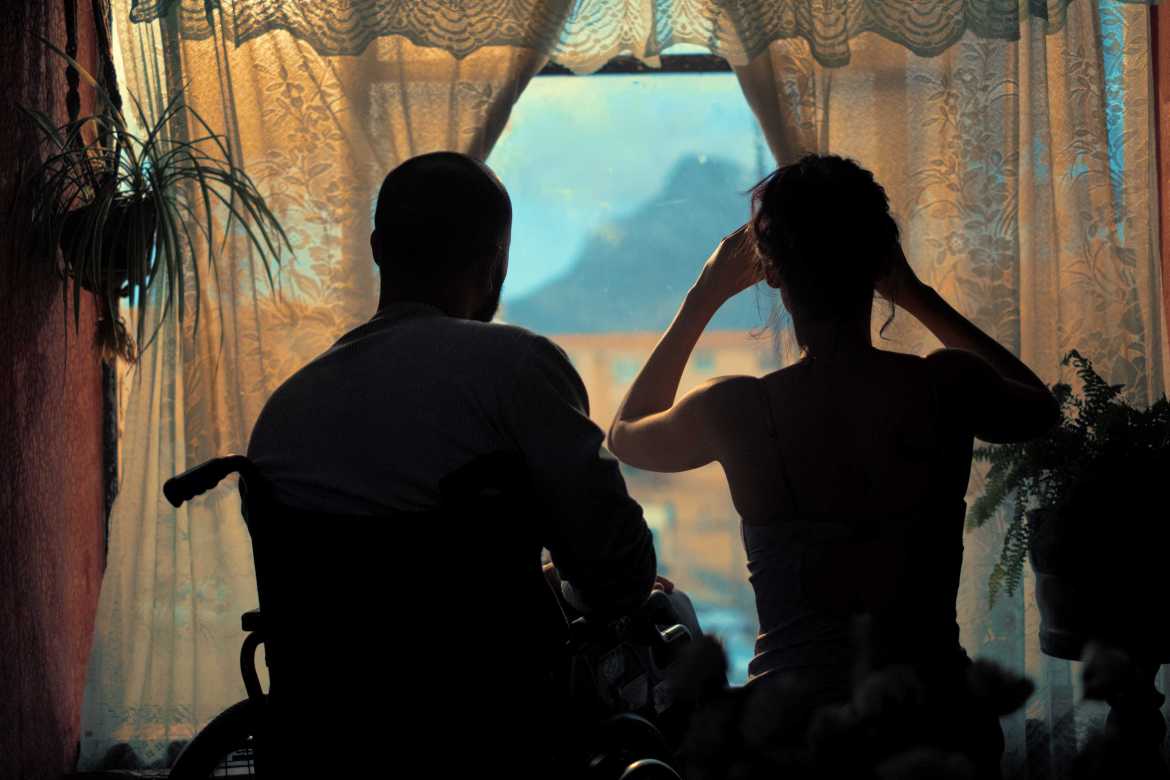We toss the phrase “Hitchcockian thriller” around an awful lot. It’s become standard term for any thriller that uses clever plot devices, claustrophobic locations, or techniques that vaguely resemble something Hitchcock tried. But for once, there is a film that actually deserves the comparison. Nosipho Dumisa’s Number 37 is certainly Hitchcockian and makes no attempt to conceal its influences, instead playing with imagery and plot points to tell a new story that would’ve made the Master of Suspense proud.
Number 37 is a half-remake of Hitchcock’s Rear Window, but unlike similar attempts that just try to do “Rear Window, but not!” (looking at you, Disturbia), the film uses Hitchcock’s work as a jumping off point to explore corruption, crime, and poverty in contemporary South Africa. Randal (Irshaad Ally) is a small-time criminal looking to escape from the slums of Cape Town, leading him to attempt a robbery funded by money from a loan shark. When the crime goes south, Randal winds up in a wheelchair, forced to spend most of his time in his girlfriend Pam’s apartment while being menaced by the loan shark to whom he owes money. Observing his tenement block through a pair of binoculars to pass the time, Randal witnesses the murder of a crooked cop by the gangsters across the courtyard, and thinks that he may have found a way out of his increasingly dangerous circumstances.

Where Rear Window was all about proving that a murder had been committed, Number 37 leaves us in no doubt. What’s at stake is what Randal does with the information when he attempts to blackmail the gangsters, leading him down a twisty and terrifying path that soon involves his friends and family. Dumisa’s camera emphasizes the claustrophobia not just of the apartment, but of the entire block. There’s no world outside the tenements, not for Randal, who finds every attempt he makes to escape blocked off by more and more dangerous people. Randal is caught between various gangs, the corruption of the local police, his own limitations, and his desperation to find a way out, and the film ramps up the tension slowly but surely until the inevitable explosion of violence. The use of many of Rear Window’s set pieces—including a sequence in which Pam has to sneak into the gangsters’ apartment—doesn’t damn Number 37 as derivative; it’s the same technique employed for a different reason, and it terrifies and enthralls just as much as Hitchcock’s work did. This is a South African noir, totally immersed in the culture it represents, not a basic Hollywood remake.
The best parts of the film are the increasing isolation and claustrophobia of the apartment, emphasizing Randal’s helplessness and seething disaffection with his circumstances. But Number 37’s weakest points are when it departs from the apartment, mostly in the third act, giving the viewer information and experiences in the outside world that feel jarring after so much time spent in close proximity with Randal. That loss of isolation threatens to take the viewer out of the film, and that’s when Number 37 begins to feel a little too much like your average thriller. But those moments are short-lived, and the film whips us back into Randal’s apartment, his wheelchair, and his psyche.
If there are a few missteps in Number 37, it doesn’t ultimately damage the film. Dumisa is a solid director, using the thriller structure to reveal pieces of South African society and the violence in which slums are steeped. There is a sense that all of the people in the tenement block are unable to escape, locked into their social roles with ever-increasing cruelty and violence, as isolated in their places as Randal is in his. We root for Randal and Pam, knowing that he will continue to fuck up, that escape is hardly possible, that the cycle will continue. It makes for an intense experience, and makes me wonder what Dumisa will do next.
Number 37 shows at Fantasia 2018 on July 28 and 30.
FOLLOW US ON: FACEBOOK, TWITTER
WANT TO SUPPORT ORIGINAL CONTENT CREATED BY WOMEN? THEN CONSIDER SUPPORTING CITIZEN DAME ON PATREON!


Episode 44: Dame – Impossible – Citizen Dame
[…] Number 37 […]